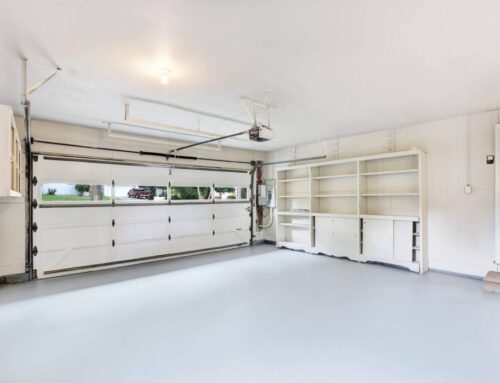Residential and commercial garage doors differ in several aspects, including their design, construction, size, functionality, and usage. Here are some key differences between the two:
- Design and Construction: Residential garage doors are typically designed to complement the aesthetics of a home and are available in various styles, such as carriage-house, traditional, or contemporary designs. They often feature materials like wood, steel, aluminum, or fiberglass. In contrast, commercial garage doors prioritize functionality and durability over aesthetics. They are usually made of robust materials like steel or aluminum and have a simpler and more utilitarian design.
- Size and Dimensions: Residential garage doors are generally smaller in size compared to commercial doors. They are typically designed to accommodate standard-sized vehicles and are available in single-car or double-car configurations. Commercial garage doors, on the other hand, are larger to accommodate commercial vehicles, delivery trucks, or industrial equipment. They can be customized to meet specific size requirements based on the needs of the business.
- Usage and Frequency: Residential garage doors are typically used by homeowners for personal use, such as parking vehicles and storing items. They are operated intermittently throughout the day. Commercial garage doors, however, are subjected to frequent and heavy usage. They are often used by businesses that require frequent loading and unloading of goods, vehicle access, or high-security applications.
- Security Features: Commercial garage doors generally have enhanced security features to protect valuable assets and provide better access control. They may include features like reinforced construction, heavy-duty locks, advanced access systems, and surveillance integration. Residential garage doors typically have standard security features suitable for residential use.
- Insulation and Energy Efficiency: Residential garage doors often offer insulation options to improve energy efficiency and temperature control within the garage and adjacent living spaces. They may have insulation layers or weather sealing features. Commercial garage doors, while insulation options are available, often prioritize durability and functionality over insulation and energy efficiency.
- Cost: Commercial garage doors are typically more expensive than residential doors due to their larger size, specialized construction, and additional security features. The cost of commercial doors can vary significantly based on customization requirements and specific functionality needs.
It’s important to note that these are general differences, and there may be variations within each category based on specific brands, models, and regional preferences. When choosing between a residential and commercial garage door, it’s essential to consider the specific needs and requirements of your property or business. If you need help with your residential or commercial garage door installation or purchase, do not hesitate to reach out to us here!





